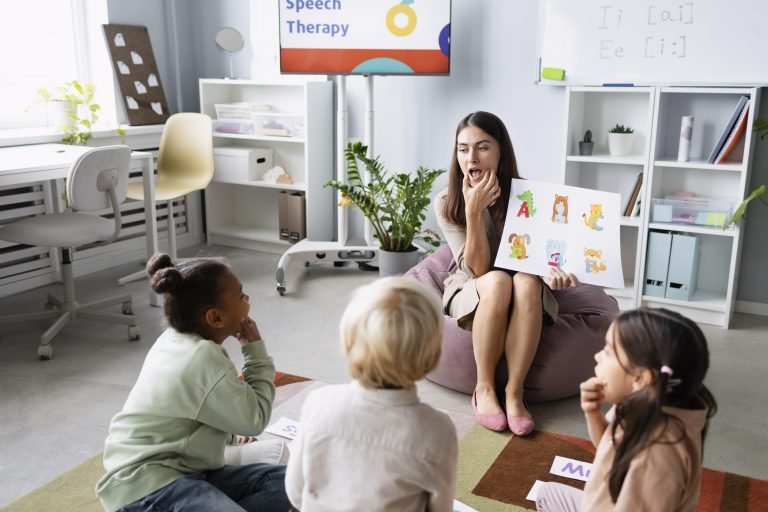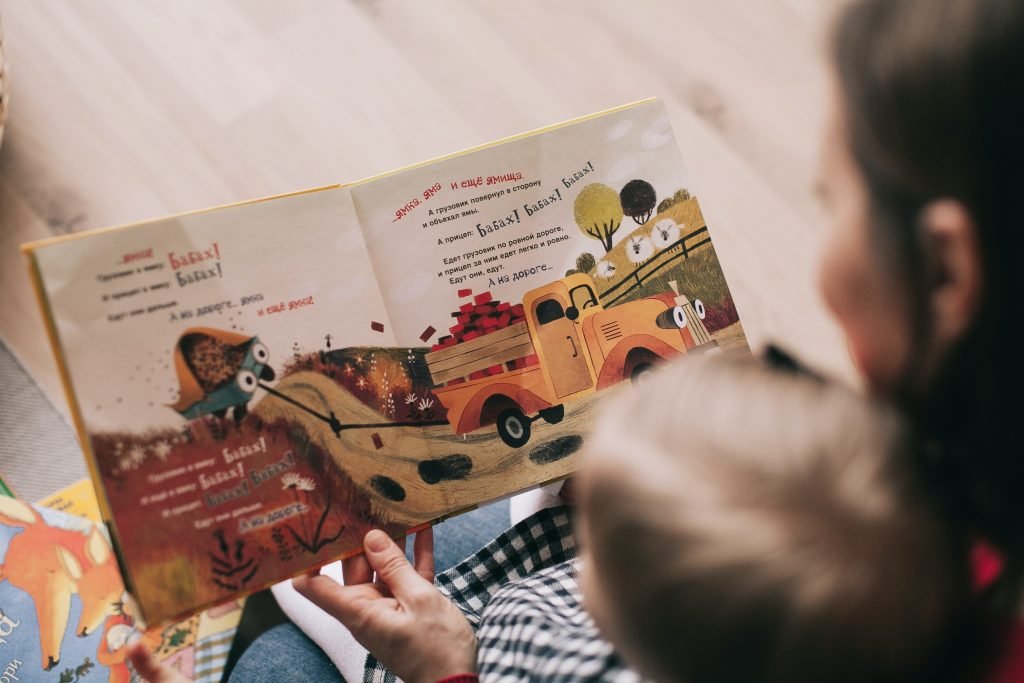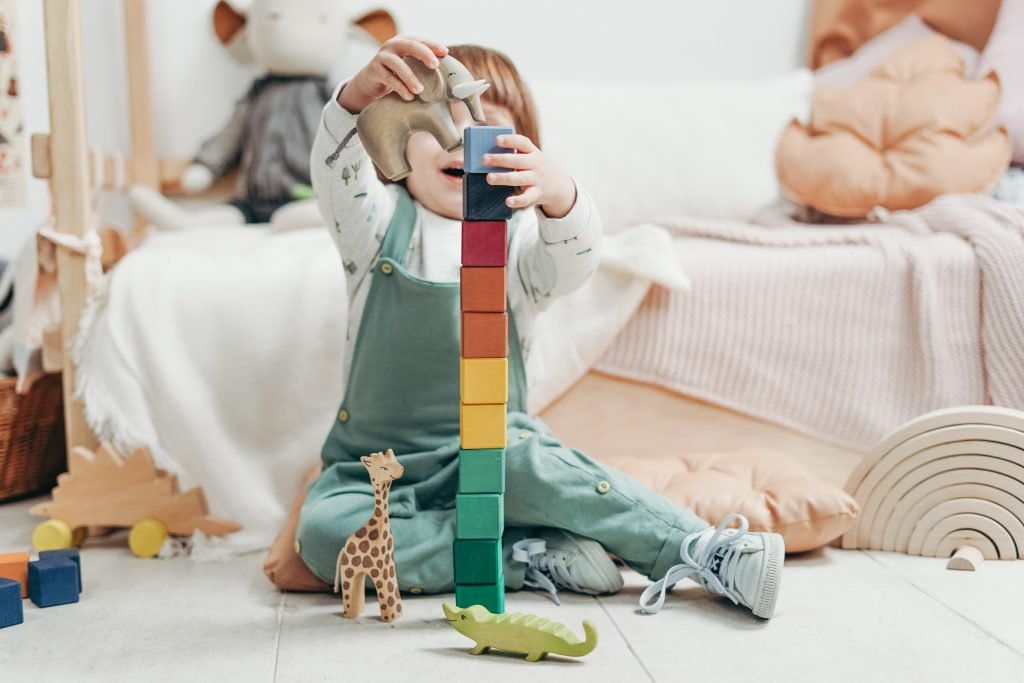Speech, Language & feeding Services
For all children in Brockville & nearby Eastern Ontario regions
At TalkingCow speech therapy we understand that every child is unique. We tailor our speech therapy services based on their strengths, needs and capabilities. We provide speech therapy services for children from young up to 12 years of age.

About Me
My name is Ridhima Batra and I simply love children. As a kid, my parents thought I would become a math teacher but my affinity to kids made me choose Speech-Language pathology as a career. But the story was different when I was a toddler. I was a late talker and uttered my first word only when I was 3 and then after, the words kept flowing like a river. Slowly, my range of vocabulary began to increase, which eased my parents’ concern.
Having been around children in different settings (math tutoring, babysitting), pursuing a speech language pathology program to help children express their needs was a no-brainer for me. I was able to dedicate both my undergraduate and graduate degree to this field with B.Sc. in Speech & Hearing and M.Sc. in Speech Language pathology from All India Institute of Speech & Hearing from University of Mysore, India.
Since my graduation in 2009, I have taken up various roles such as speech therapist, Auditory verbal therapist and educator & mentor for new graduates. I have experience working with children who have autism spectrum disorders, receptive and expressive language delay, articulation problems, stuttering, voice and feeding difficulties. I have attended numerous programs and some of them include: PECS, PROMPT, Hanen-more than words, Hanen-It takes two to talk, Fluency indirect treatment, Motor speech training, Talk tools- Sensory motor approach to feeding, SOS approach to feeding. I am a registered member of College of Audiologists and Speech Language Pathologists of Ontario (CASLPO).
SPEECH THERAPY Services
Language delay (Receptive & Expressive
Receptive and Expressive language delay are the two major types of language delays. Receptive language refers to the ability to understand what’s said to you or what you read and expressive language refers to the ability to communicate using words, sentences or through writing.
Pronunciation Errors
Pronunciation/Articulation is how we produce words and sounds when the lips, tongue, jaw, teeth, and palate adjust the air coming through the vocal folds. Errors in pronunciation occurs when an individual may not be able to modify their articulators to produce speech sounds. Image by Freepik
Autism Spectrum Disorders
Autism spectrum disorders (ASD) include social, communication and behavioral challenges. It is called a spectrum disorder because there is a wide variation in the type and severity of symptoms people experience. Some people with ASD may have advanced conversation skills whereas other may be nonverbal.
Fluency Therapy
Stuttering, also called as stammering is a speech disorders that affects or interrupts free flow of speech. Fluency therapy is a type of speech therapy that works on techniques such as “smooth speech” technique or “stuttering modification” technique to improve fluency and reduce stuttering.
Reading comprehension
Reading is one of the most important skills for children to learn as it’s correlated to academic success, self-esteem, concentration, vocabulary, memory, and critical thinking skills. Understanding alphabetic principle – the idea that letters and letter patterns represent the sounds of spoken language is critical for reading development
Our Values
- Family Centeretd Practice
- Communication is the focus
- Neurodiversity Affirming
When does my child need Speech Therapy
- Not babbling around 4 to 6 months of age
- Making only few sounds or gestures (7 – 12 months)
- Not understanding what others say (7 months – 2 years)
- Says only few words (12 months – 2 years)
- Cannot understand or follow simple instructions (2 years)
- Doesn’t understand or respond to simple questions (2 years)
- Struggling to play and talk with other children (2 – 3 years)
- Doesn’t combine words to form sentences ( 2-3 years)
- Less familiar people find it hard to understand your child’s speech (3 years)
- Many grammatical errors in sentences (4 – 5 years)
- Showing no or little interest in reading and writing (4 – 5 years)


Speech & Language MILEstones
Speech and language development is a critical part of a child’s growth and development. Understanding the typical milestones can help parents identify any potential delays or difficulties and seek the appropriate support. Here are some of the speech and language development milestones to look for in children
Birth to 1 year
- Makes cooing and gurgling sounds in response to sounds and voices
- Begins to make vowel sounds (such as “ah” and “oh”)
- Smiles in response to familiar voices
- Begins to make simple babbling sounds
1 to 2 years
- Says simple words, such as “mama” and “dada”
- Begins to put two words together, such as “more juice”
- Understands simple commands, such as “come here”
- Points to objects and pictures when named
2 to 3 years
- Uses short sentences, such as “I want cookie”
- Vocabulary increases to 50 words or more
- Asks simple questions, such as “what’s that?”
- Follows simple directions
- Begins to use gestures, such as waving and pointing, to communicate
3 to 4 years
- Vocabulary increases to 900 words or more
Uses complex sentences, such as “I want to play with the ball” - Understands basic concepts, such as “big” and “little”
- Begins to tell simple stories
- Expresses emotions and feelings through words
4 to 5 years
- Vocabulary increases to 1500 words or more
- Uses correct grammar and pronunciation in sentences
- Asks more complex questions
- Understands basic concepts, such as “same” and “different”
- Begins to use descriptive words, such as “happy” and “sad”
5 to 6 years
- Vocabulary continues to grow
- Uses advanced sentence structures, such as questions and negations
- Begins to understand the meanings of new words
- Begins to understand basic math concepts, such as “more” and “less”
- Uses proper pronouns and verb tenses
What our clients say
Your next steps
We support children to become linguistically independent
Book an assessment for your child. Call 613-556-1121






